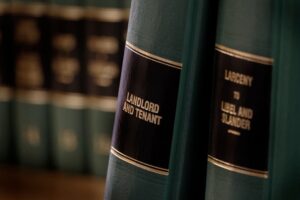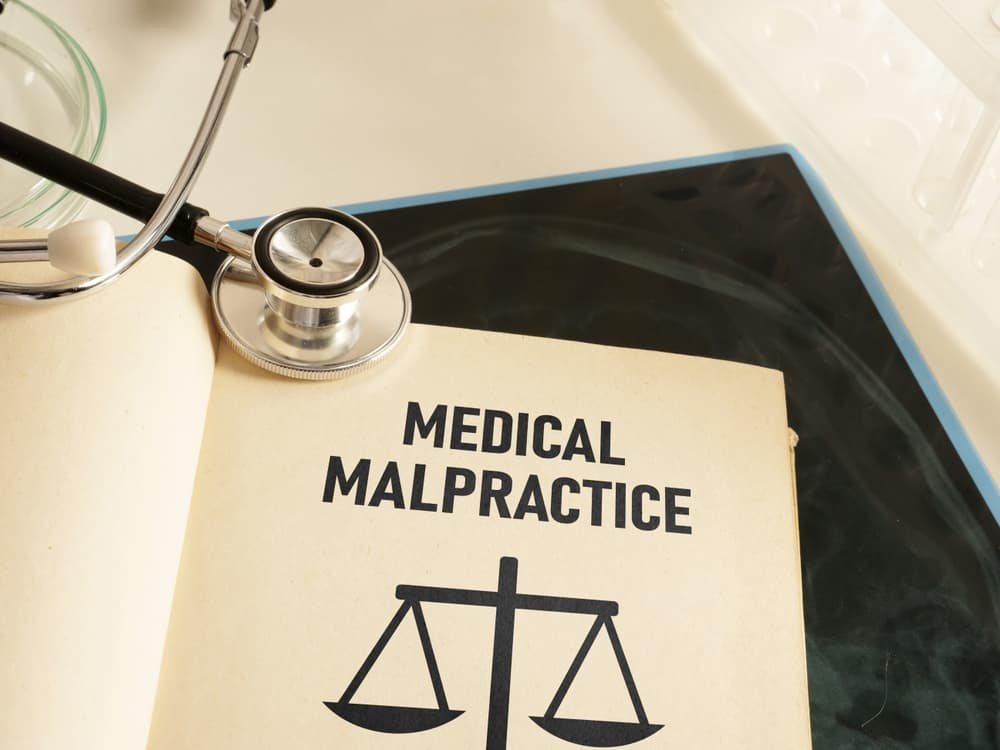If you are a tenant who suffers an injury at your rental property, you may wonder about your rights and what legal action you can take. Often, your rights to pursue compensation depend on the circumstances surrounding the injury and the specifics of the landlord/tenant agreement. An experienced South Carolina personal injury lawyer can explain your rights as a tenant who suffers an injury in their rental property and what compensation you may be eligible for under insurance coverage or the law in your state.
Basics of Landlord–Tenant Law and a Landlord's Responsibilities in South Carolina

In landlord–tenant relationships, the landlord has several legal duties regarding the safety and habitability of the rental property. However, the extent and nature of these responsibilities are complex to navigate and may vary. They can also depend on the underlying agreement between the landlord and tenant.
Tenants may not understand their rights or whether their landlord breached any legal responsibilities. If they have, a tenant might seek compensation for any injuries or losses they incur following an accident on the property.
General Obligations of a Landlord Under Standard Laws
Generally, landlords must ensure that a rental property is fit for habitation. This usually means it is structurally safe, has working utilities, and is free of health hazards and hidden dangers, among other factors. Sometimes, landlords also have a duty to address certain hazardous conditions on the property, especially if they are aware of the problem and have reasonable time to repair or rectify the danger.
Common Scenarios in Which a Landlord Might Be Responsible in South Carolina
When it comes to injuries on a rental property, not all incidents may fall under the landlord's responsibility. Various conditions affect the situation, such as whether the landlord was aware of the dangerous condition—or should have known about it—and if the landlord had many opportunities to fix it.
Understanding the types of scenarios that can give rise to a legal claim can help you determine if you have a valid case against your landlord. There are many scenarios in which a landlord may be responsible for your injuries and the subsequent expenses and losses that follow an accident in your rental property.
Examples of situations where a landlord could potentially be liable include:
- Structural defects.
- Failure to maintain common areas.
- Failure to repair—or negligence in repairing—known hazards.
- Failure to warn the tenant of potential hidden dangers or faults on the property.
- Failure to inspect the property routinely for possible dangerous conditions.
For instance, your landlord may be liable if you sustain injuries from falling on a broken staircase that the landlord was aware of but did not fix. A personal injury lawyer can evaluate your case and determine how the law may apply in your situation.
The Process Your South Carolina Personal Injury Lawyer Can Follow in Determining a Landlord's Liability
Analyzing a landlord's liability requires a multi-step process, often beginning with thoroughly examining the lease agreement, state and local regulations, evidence surrounding your injury, and events leading up to it. Your lawyer will assess whether the landlord had a duty of care under the law, if they violated their legal obligation, and how this breach led to your injury.
This process requires a deep understanding of the landlord and tenant responsibilities and premises liability laws in your state.
Your attorney can provide you with information regarding your accident on the rental property and how the law might give you the right to seek compensation for your damages.
Determining Damages in a Personal Injury Case
As a victim of an injury that occurred while at a rental property due to a landlord's negligence, you may be eligible for several forms of compensation or damages. These could include medical expenses, future medical care, lost income, and pain and suffering.
Calculating all of your damages can significantly affect the amount of money an insurance company or at-fault party may offer you as a settlement for your damages. A skilled personal injury lawyer can effectively calculate and justify your damages to increase your chances of a favorable settlement or verdict.
What to Do if You Get Injured on a Rental Property
Experiencing a personal injury is distressing, and the immediate moments following the injury can be chaotic and confusing. However, the actions you take in the days following an injury can considerably affect any potential legal claim you may have. Your priority is your health.
Once your injuries stabilize and under the care of doctors, protect your legal rights. A personal injury lawyer can guide you through these steps, ensuring you retain the best chance of a successful outcome for any possible legal claims or proceedings.
Medical Care and Follow Up
After an injury, seek immediate medical attention. Prioritize your health and continue treating your injuries according to the plan your doctor set out. A court or an insurer can look at the evidence surrounding your recovery when determining how much the injuries have affected your life.
Reporting Your Injury
When an injury occurs in a public area where property managers or owners are present, they may create a report. However, an injury might occur when you are alone or in the presence of just a few witnesses. Reporting the injury to the landlord or property owner yourself is necessary in many cases for insurance filings and to preserve your right to take legal action.
Document Your Injuries and Gather Evidence
As you go through the recovery of your injuries following an accident, collect all information, records, and evidence that you may come across. This could include taking photographs of the progress of your injuries, identifying where and how the injury happened, and noting any conditions that may have contributed to the accident.
How a Personal Injury Lawyer Can Guide You Through These Steps
As you navigate the aftermath of an injury on a rental property, a personal injury lawyer can provide you with invaluable guidance. They can ensure that you adequately document the incident, which is vital in building a compelling case in your favor.
A lawyer can also inform you of any time limits for filing a lawsuit in South Carolina and assist in preserving evidence that could be relevant. A premises liability lawyer provides reassurance and security during a time when emotions and stress are running high following an unexpected accident.
The Legal Process: Suing a Landlord for a Personal Injury
If you have sustained an injury on a rental property due to your landlord's negligence, an attorney can consider your legal options. Pursuing a personal injury claim against a landlord can involve several stages and multiple legal requirements. Understanding the basics of this process can ease your concerns and highlight the indispensable role your lawyer plays in navigating this journey.
The legal process typically begins with filing a legal action, which claims that the landlord's negligence caused your injuries. The landlord will then have the chance to respond. Discovery—where both sides exchange information—comes next. Negotiations typically follow, which seek to resolve the issue without going to court. If a settlement is unsuccessful, the case may proceed to trial.
How a South Carolina Personal Injury Lawyer Can Help Even If You Do Not Want To Sue
Even if you decide not to sue your landlord, a lawyer can still be of significant assistance. Having one by your side can make drafting a demand letter, negotiating with your landlord or their insurance company, or finding legal advice quicker and less stressful.
Many cases involving injuries on a rental property do not require the filing of a lawsuit and can reach a successful outcome outside of court through the settlement of an insurance claim. Premises liability lawyers have an in-depth understanding of and experience in handling injury claims with insurers, which can help you avoid needing to go to court.
Role of Insurance in Landlord–Tenant Injuries
In many cases, insurance plays an important role in landlord–tenant injury cases. The tenant's renter's insurance may cover their belongings and liability for accidents that occur in their unit, while a landlord's property and liability insurance may cover injuries in common areas or those that result from the landlord's negligence.
Understanding the role and extent of insurance can help you decide the best course of legal action and determine the potential compensation source for your claim.
The Crucial Role Your Lawyer Plays in Navigating This Process
Your lawyer will take the lead in handling the legal process after an injury on your rental property. From drafting and filing your complaint to protecting your interests during discovery, your lawyer can be your advocate throughout.
They can negotiate on your behalf to secure the best possible outcome and, if necessary, represent you in court. Their knowledge, experience, and strategic approach can make a significant difference in your case, including increasing the amount of compensation you may receive as compensation for your losses.
How a Personal Injury Lawyer Can Assist You
If you incur an injury due to your landlord's negligence, it is crucial to know your rights and understand the legal complexities involved. Having a personal injury lawyer in your corner can significantly ease this journey and increase your chances of getting the money you need to meet the overwhelming burden that follows an unexpected injury.
Gathering and Presenting Evidence
A critical aspect of any personal injury case is supporting the claim with evidence. This includes physical evidence, witness accounts, medical records, bills, and more.
Your lawyer can meticulously collect, review, and present this evidence to build the strongest possible case and aim to get you the highest compensation possible on your behalf.
Negotiating With a Landlord or Their Insurance Company
Negotiations are often a complex yet necessary phase. Your lawyer can engage in negotiations with your landlord or their insurance company, leveraging their experience to strategize and present your case compellingly to reach a settlement offer that benefits you.
Representing You in Court
If your case goes to trial, your personal injury lawyer can represent you in all necessary court proceedings. They will make opening statements, examine witnesses, and give closing arguments, advocating for you every step of the way to secure the most favorable outcome possible for your case.
Understanding the Statute of Limitations
Each state imposes a time limit, known as the statute of limitations, within which a lawsuit must begin following an injury. These limits vary depending on the type of injury and the state where the injury occurred. If you fail to file your claim within this period, you may lose your right to sue. A personal injury lawyer will ensure that you file your lawsuit within the appropriate period and inform you of the statute of limitations that applies in your case.
Contact a Premises Liability Lawyer If You Suffer an Injury on a Rental Property

Navigating a personal injury on a rental property in South Carolina can be both physically and emotionally overwhelming. Understanding your rights and knowing the legal routes available to you can help you create a path forward from this unexpected accident. If you are a victim of an injury on a rental property, contact a lawyer to discuss the laws applicable in your state and your right to compensation.







